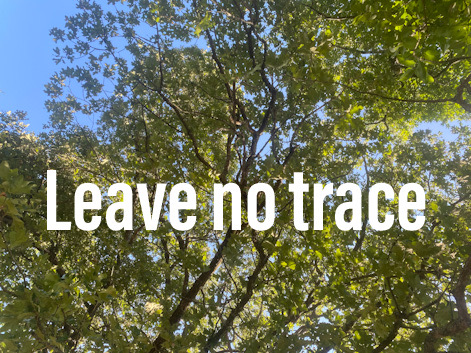If you have heard hiking lingo, you have likely heard the concept of “Leave no Trace”. Really, anyone involved in the outdoors needs to adopt this philosophy about adventuring in the great outdoors. But what are the principles of leave no trace? Great question! I would love to tell you.There are seven principles of the leave no waste idea.
- Plan ahead, and prepare
When getting ready to go out into nature, begin by adequately packing and researching where you will be. Make sure all trail requirements are being met if there are any. Verify that everything that goes in with you is coming back out. Have a method of bringing all waste, including food waste, back out.
- Travel and camp on durable surfaces
When trails are available, it is absolutely best to stay on them. The likelihood of trampling precious plants on the forest floor goes down tremendously. And for individuals, it’s a matter of safety. There can be holes that are hard to see until your foot finds its way inside and your ankle is hurting. Also camp in campsites that are existing whenever possible to avoid damaging the undergrowth by creating a new spot. If no premade campsites are available, choose a place not right at the water’s edge, or on top of the trail. Following the leave no trace method when camping in an undisturbed location calls for moving the tent each day to keep from completely killing out the undergrowth below.
- Dispose of waste properly.
If it goes in with you, bring it out. Yes, even biodegradable things like food scraps. Leave no trace, and your trace is all over that apple core.
- Leave what you find
Observe, like my kids hear often “look with your eyes”, and then go on. If it wasn’t yours before you started the day, it’s not yours now. There are lots of ways to say this and think about this, but leaving nature where it was and in the same condition it was in.
- Minimize campfire impacts
Choose campgrounds with lots of wood available if you plan to build a fire. Use an existing fire ring if there is one. Always put out fires before going to bed or leaving campsite. Finding wood around the campsite is ideal to avoid introducing pests from wood brought in from elsewhere.
- Respect wildlife
It is always fine to watch animals from a distance, but don’t disturb them. Don’t feed, scare, or handle any animals you find while out.
- Be respectful of others
Being outside in nature is great. Remember to share the trail, and give space to others you encounter while out exploring the great outdoors.






